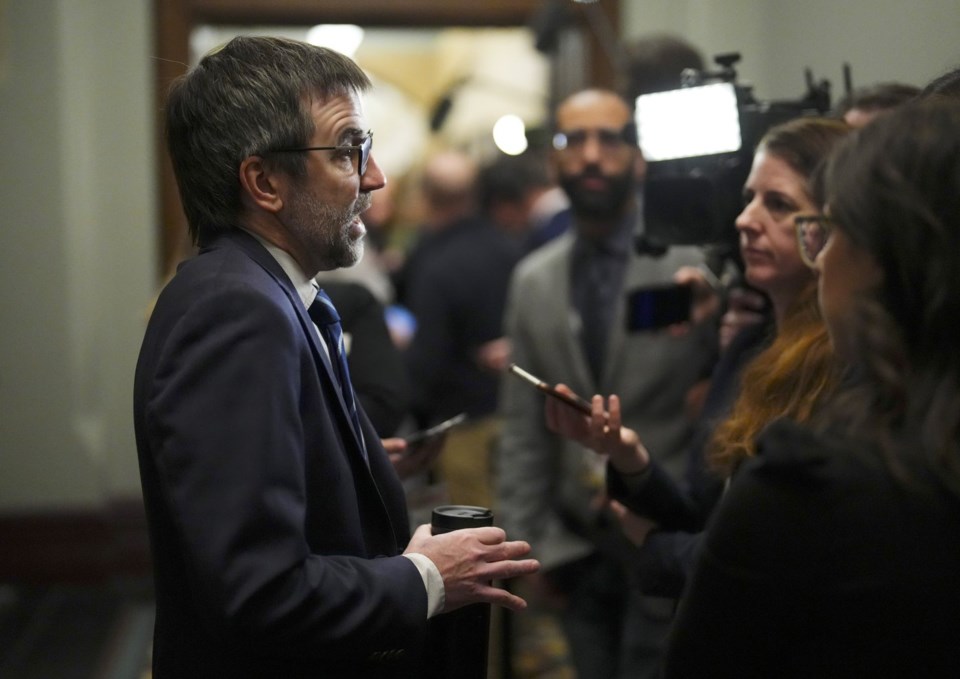Canada was disappointed negotiators failed to reach a deal on a global treaty to end plastics pollution, Environment Minster Steven Guilbeault said, though he remained hopeful an agreement could still be struck with talks set to resume next year.
Talks by the negotiating committee in South Korea, scheduled to end Sunday, were supposed to be the fifth and final round of negotiations on the world's first international treaty to address the plastic pollution crisis.
As the clock wound down on negotiations, countries were still at an impasse over whether the treaty should reduce the total plastic on Earth and put global, legally binding controls on toxic chemicals used to make plastic. Negotiators made plans to resume talks in 2025.
Despite the deadlock, Guilbeault said a deal was still within reach.
"I think we ran out of time. But I don't think that the work that's been going on this week is lost," he said in an interview Sunday.
"I think we can build on that and given a bit more time, I'm convinced we can come to an agreement."
Canada and 100 other countries have called for a treaty to include a global target to reduce plastic production to sustainable levels, a position opposed by some oil- and plastic-producing countries including Saudi Arabia and Russia.
At Sunday night鈥檚 meeting, Luis Vayas Valdivieso, the committee chair from Ecuador, said that while they made progress in South Korea, their work is far from complete and they must be pragmatic. He said countries were the furthest apart on proposals about problematic plastics and chemicals of concern, plastic production and financing the treaty, as well as the treaty principles.
The plastics treaty talks cap a series of international negotiations in recent weeks that fell short of what some observers say is needed to address the interlinked crises of climate change, biodiversity loss and pollution.
Both the United Nations biodiversity and climate change summits ended earlier this month with financial commitments below what developing countries said they needed to tackle those issues. After meeting in Brazil last month, the G20 leaders' statement also failed to explicitly repeat a call for a transition away from fossil fuels, one of the hard-fought agreements to come out of last year's UN climate summit.
Guilbeault says he would plan to use next year's G7 summit set be hosted in Alberta as a platform to advance the issue.
"We can't give up. We have to keep trying," he said Sunday, acknowledging what he described as a "tough year" for international environmental negotiations.
Canada's own ban on some single-use plastics is tied up in court. Plastic makers and chemical companies successfully argued that the government was too broad when it declared all plastic to be toxic, the designation Canada used in order to enact that ban. The case is currently before the Federal Court of Appeal.
In 2020, Canada produced more than 7.1 million tonnes of plastic and only five per cent of it was recycled material. Almost five million tonnes of plastic ended up as waste, with less than 10 per cent of it recycled.
Global plastic waste is set to nearly triple by 2060 without action, according to the Organization for Economic Co-operation and Development. Made from oil and other fossil fuels, plastics also account for an estimated 3.4 per cent of global greenhouse-gas emissions.
Plastic pollution is a wildlife killer and a contaminant of soil and water supplies around the world.
Microplastics, no bigger than the width of a pencil eraser down to about the width of mitochondria, are virtually ubiquitous, showing up everywhere from human blood to Arctic Sea ice. In species such as fish, these broken-down bits of larger plastics have been linked to lower levels of growth and reproduction, among a suite of other issues.
Researchers are still trying to determine more conclusively whether microplastics carry a direct risk to human health, and at what level.
--With files from The Associated Press.
This report by The Canadian Press was first published Dec. 1, 2024.
Jordan Omstead, The Canadian Press




